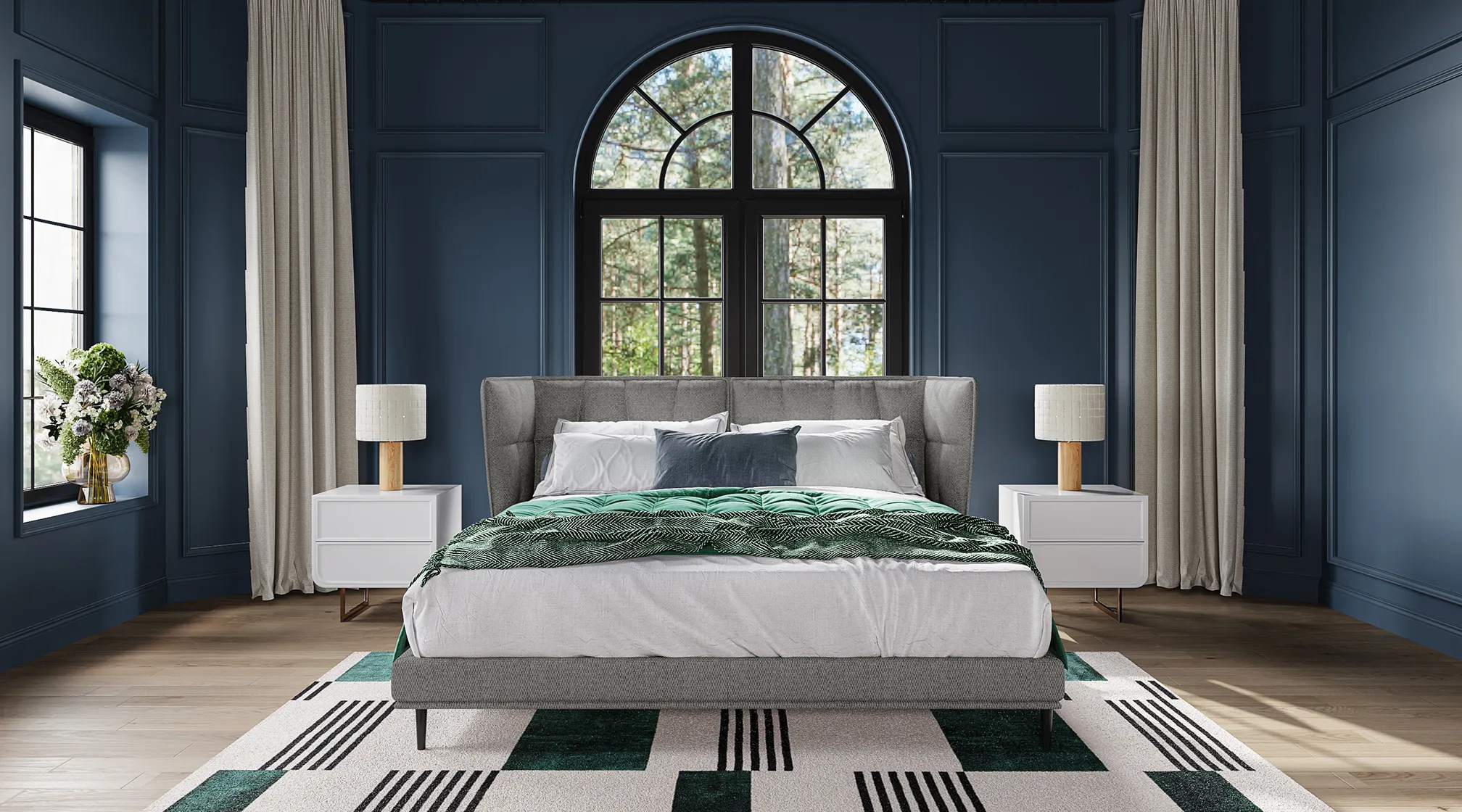Transform your nightly retreat into a haven of tranquility with the art of Feng Shui nightstand arrangement. Let’s discover how the simple placement of items on your nightstand can influence the energy flow in your bedroom. Elevate your sleeping sanctuary as we delve into the principles that guide the arrangement of this essential bedside element for a restful and harmonious night’s sleep.
People Also Read:
What is the Feng Shui for a nightstand?
Incorporating Feng Shui principles into your bedroom can significantly impact your overall well-being, and the bed table plays a crucial role in this ancient practice. According to Feng Shui, the nightstand, commonly known as a bed table, should be positioned on either side of the bed for balance and harmony. Ensure both nightstands are of equal size and height to promote equality and create a sense of unity in your sleep space.
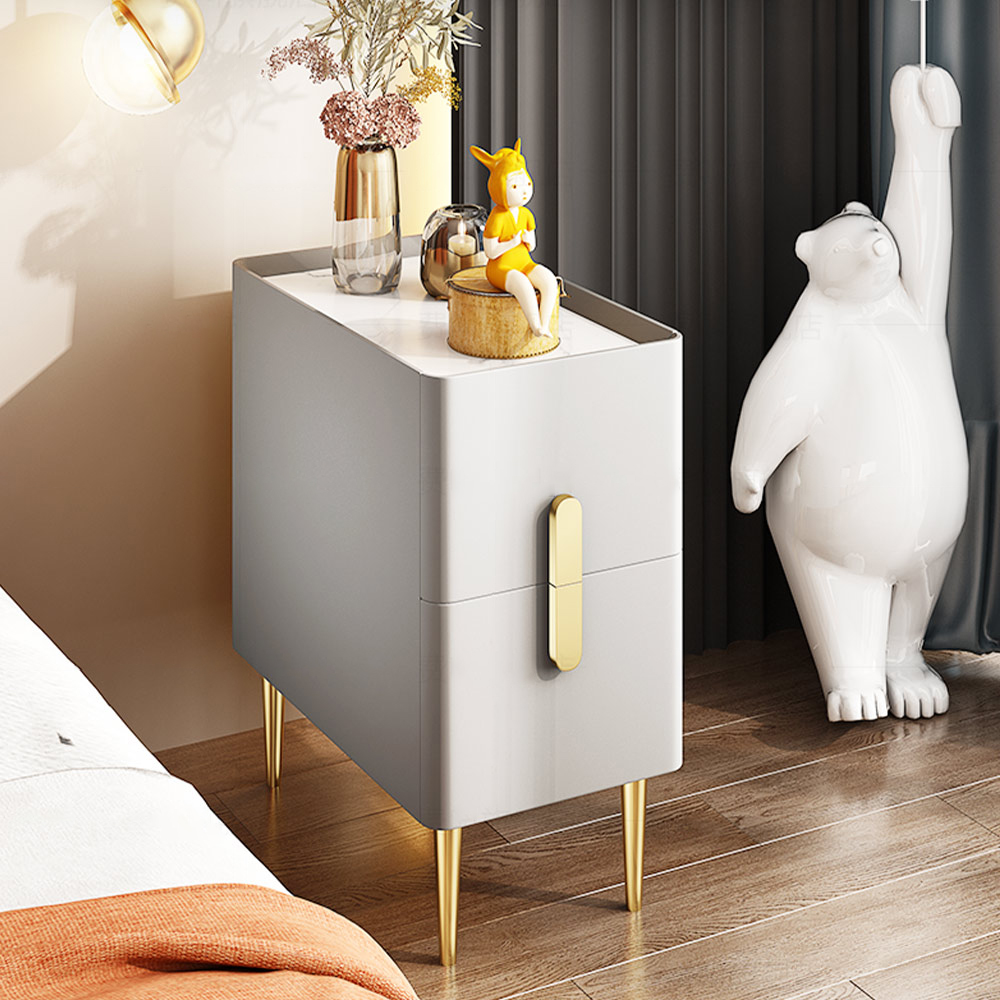
Is it bad Feng Shui to have on nightstand?
The items you place on your nightstand can influence the Feng Shui of your bedroom. Avoid electronic devices, especially near your head, as they can disrupt the natural energy flow and potentially interfere with your sleep. Sharp objects, such as scissors or knives, are discouraged due to their association with cutting energy. Instead, opt for soothing items like a book, a small potted plant, or calming crystals to enhance positive energy and promote a serene atmosphere.
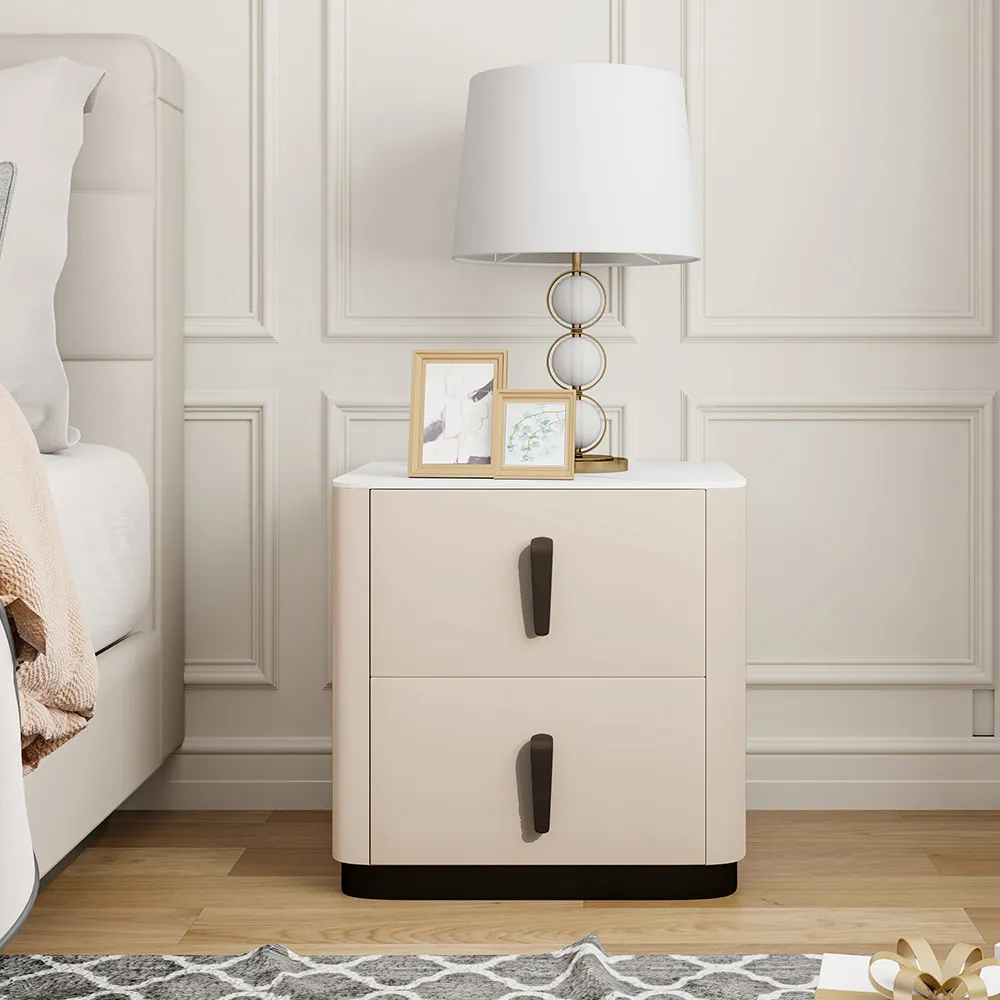
What is the fengshui nightstand height?
Feng Shui places emphasis on balance and symmetry, extending to the height of your nightstand. Ideally, the nightstand should be level with the height of your mattress. This creates a harmonious visual line, promoting a sense of equilibrium in the bedroom. When selecting a nightstand, ensure it complements the bed’s height, allowing for a seamless connection and contributing to the overall Feng Shui balance within the space.
Now that we’ve delved into these crucial aspects of Feng Shui in the bedroom, let’s explore in greater detail how you can optimize your sleep environment to maximize harmony and well-being.
- Feng Shui Principles: Arrange your bedroom following Feng Shui principles, ensuring a balanced placement of furniture, especially the bed and nightstands. This promotes a positive energy flow conducive to relaxation and sleep.
- Comfortable Mattress and Pillows: Invest in a comfortable mattress and pillows that support your preferred sleep position. The right bedding contributes significantly to a restful night’s sleep.
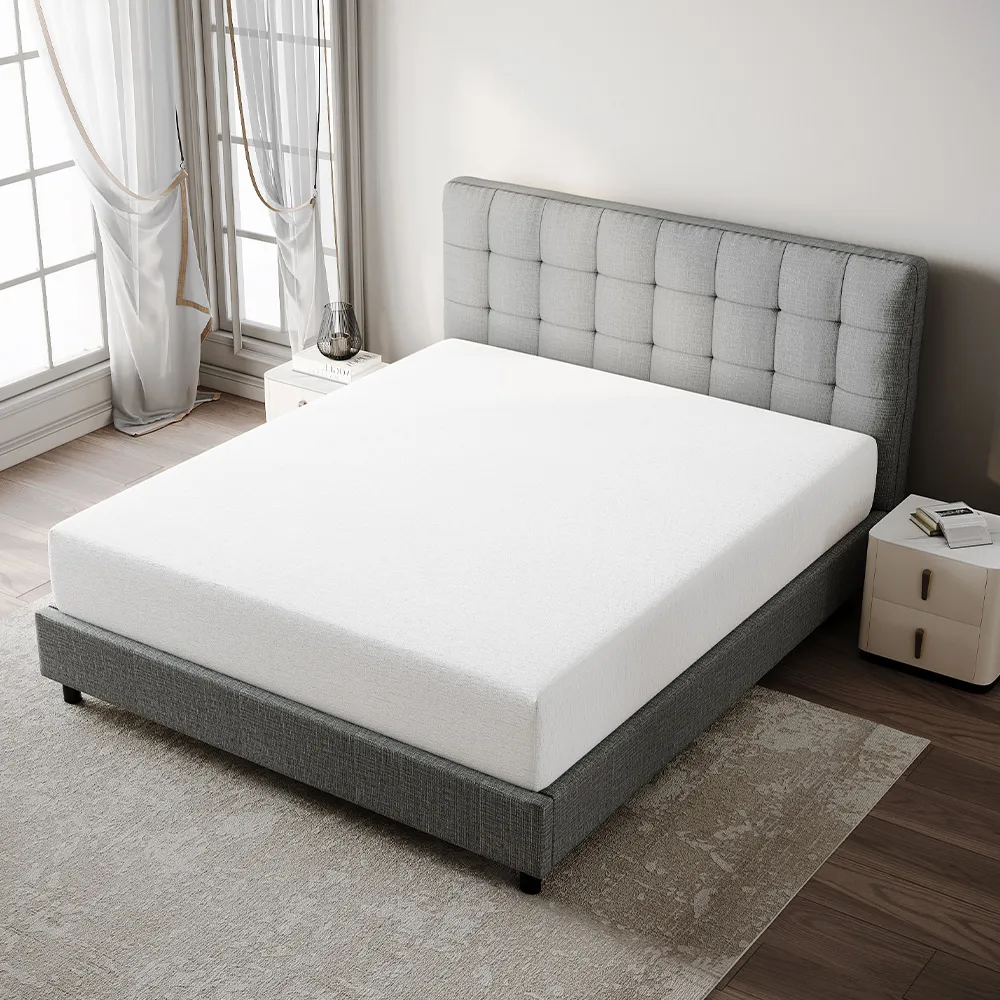
- Appropriate Lighting: Use soft, warm lighting in the bedroom, particularly during the evening. Avoid harsh overhead lights, and consider incorporating dimmers or bedside lamps with soothing hues.
- De-clutter Your Space: Keep your bedroom clutter-free to create a serene atmosphere. Clutter can disrupt the flow of energy and contribute to feelings of stress, affecting your overall well-being.
Learn How to De-clutter Makeup Collection
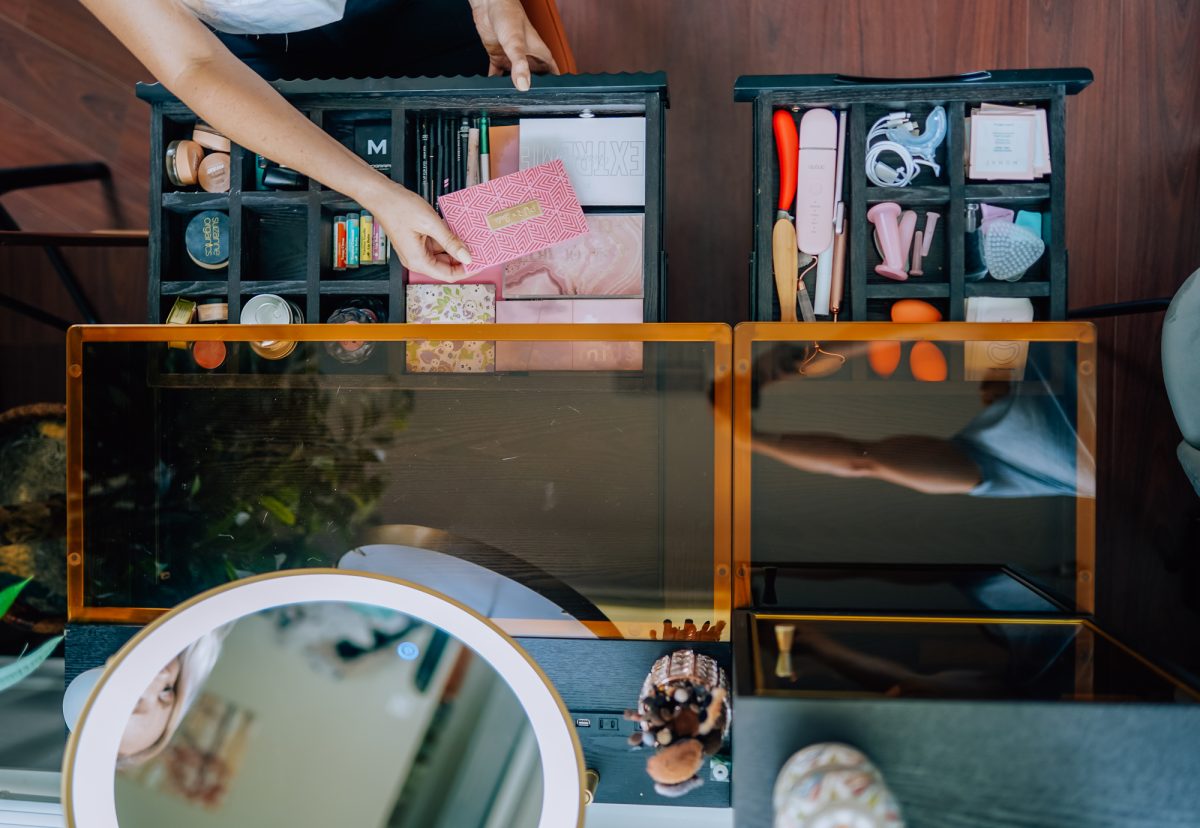
- Natural Elements: Introduce natural elements such as plants or natural fabrics into your bedroom. These elements can enhance the connection with nature, promoting a sense of calm and balance.
- Technology-Free Zone: Create a technology-free zone in the bedroom. Avoid using electronic devices before bedtime, as the blue light emitted can interfere with your circadian rhythm and disrupt your sleep.
- Proper Ventilation: Ensure proper ventilation in your bedroom for fresh air circulation. A well-ventilated room promotes better sleep and contributes to overall well-being.
- Calming Color Palette: Choose calming colors for your bedroom walls and bedding. Soft blues, greens, or neutral tones can create a soothing and relaxing atmosphere.
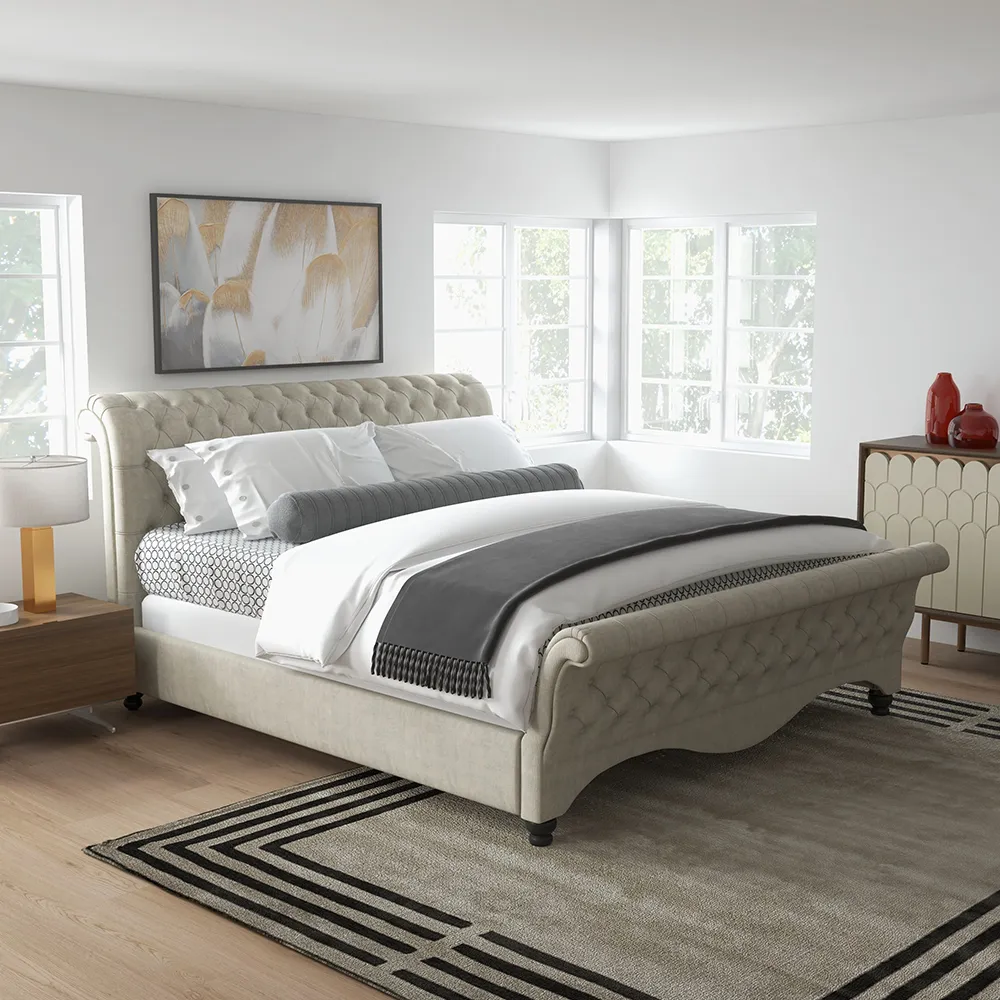
- Personalized Sleep Rituals: Develop personalized pre-sleep rituals to signal to your body that it’s time to wind down. This could include activities such as reading, gentle stretching, or practicing mindfulness.
- Optimal Room Temperature: Maintain an optimal room temperature for sleep, typically between 60-67 degrees Fahrenheit (15-20 degrees Celsius). A cooler room can promote better sleep quality.
FAQ: What is bad Feng Shui for bedroom?
Understanding what constitutes bad Feng Shui in the bedroom is vital for cultivating a harmonious and restful environment. Avoid placing the bed in direct alignment with the bedroom door, as it is believed to result in disturbed sleep and energy imbalance. Additionally, steer clear of clutter under the bed, as it can disrupt the energy flow and create stagnation. Mirrors facing the bed are also discouraged, as they are thought to bounce energy and impact the quality of your sleep.
